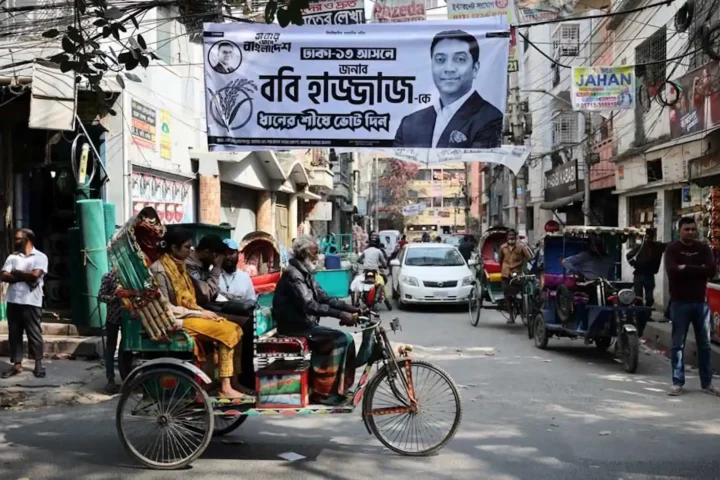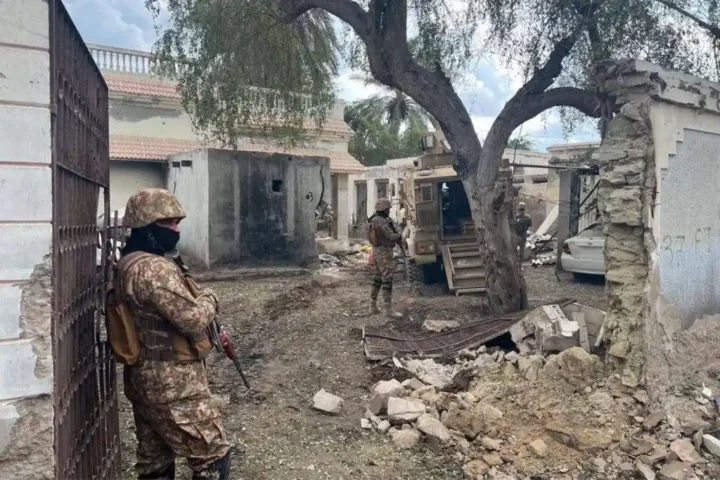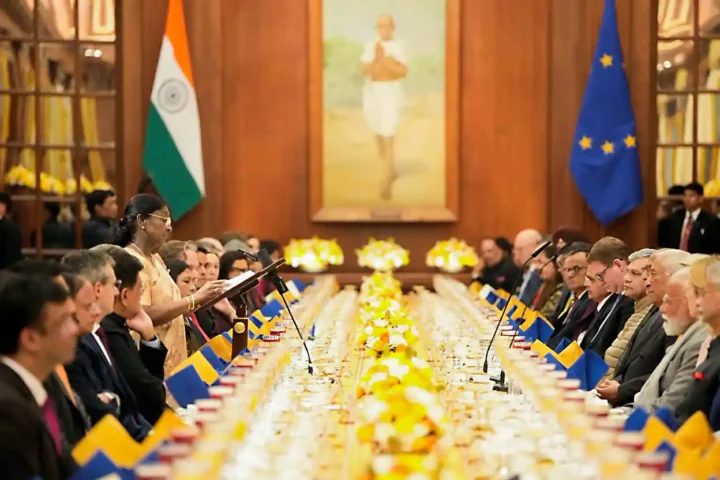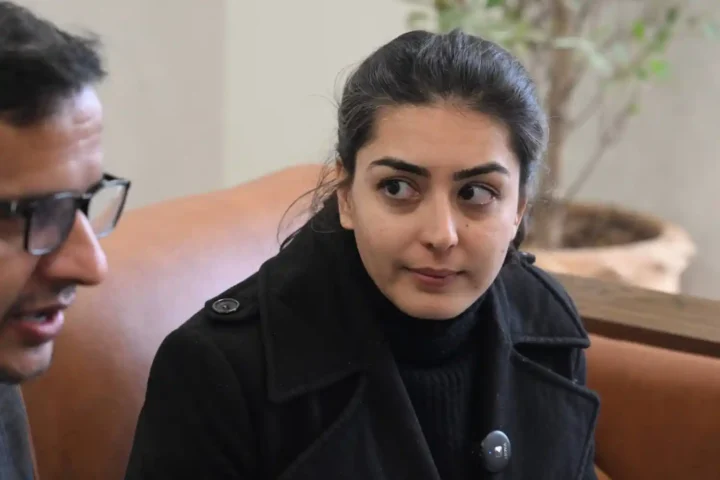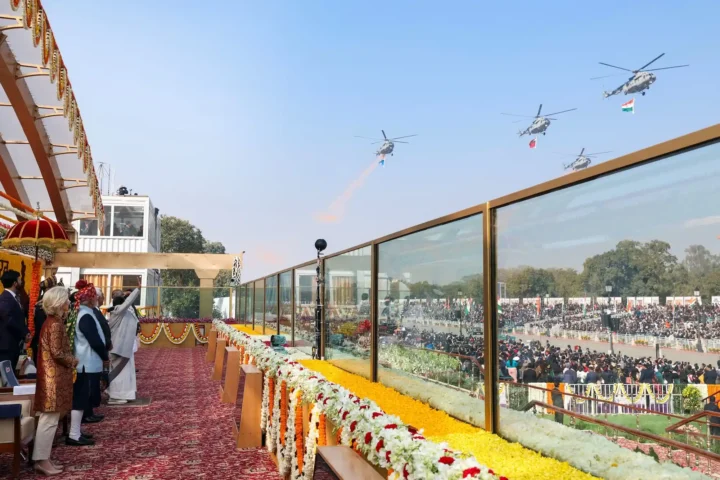Pakistan’s education system—rooted in religious intolerance, historical distortion, and anti-India narratives—has become a breeding ground for extremism and a barrier to economic progress. Drawing on textbook analyses, militant recruitment data, and economic indicators, this piece argues that ideological indoctrination in schools fuels terrorism, deters foreign investment, and limits critical thinking. The piece calls for urgent curricular reform, decoupling education from military influence, and fostering inclusive, secular narratives. Without rethinking how it educates its youth, Pakistan risks perpetuating a cycle of violence and underdevelopment that threatens both national stability and regional peace.
In a world where nations rise and fall not just through wars or economic crises but through the ideologies they pass to their young, Pakistan presents a striking case study. While most countries invest in nurturing innovation and critical thinking among their youth, Pakistan continues to rely on a curriculum steeped in religious intolerance, historical revisionism, and ideological indoctrination. This education system has become a breeding ground for extremism and a structural impediment to economic progress.
Pakistan today stands at a pivotal juncture. The country’s survival—and that of its future generations—depends not on military might or international aid, but on a foundational shift in how it educates its children. Without urgent reform of its educational ideology, Pakistan risks remaining trapped in a cycle of economic dysfunction and violent extremism that jeopardizes not only its internal stability but also regional peace.
The Crisis in the Classroom: Indoctrination Masquerading as Education
At the heart of Pakistan’s multifaceted crises lies an education system that systematically distorts history, demonizes minorities, and glorifies religious warfare. A longitudinal review of over 100 state-prescribed textbooks across Pakistan’s four provinces reveals troubling patterns. From labeling Hindus as “kafirs” and portraying Christians as colonial collaborators, to the erasure of Sikhs and Ahmadis from historical narratives, the curriculum entrenches religious chauvinism under the guise of national identity.

In Grade 8 Social Studies, medieval figures like Mahmud Ghazni are lauded not for statecraft but for destroying Hindu temples, celebrating acts of violence as divine victories. More disturbingly, students are required to memorize sweeping indictments such as “The Hindus always betrayed Muslims,” a phrase embedded in standardized exams. Teachers in Punjab have confessed to penalizing students who question this content—essentially punishing critical thinking.
This pedagogical model is not accidental; it is systemic. It instills a worldview that equates nationalism with religious orthodoxy and paints diversity as a threat. Such an approach does not merely miseducate—it radicalizes.
Economic Paralysis: The High Cost of Hate
The economic consequences of this ideology-laden education system are staggering. According to the World Bank, Pakistan loses $8.9 billion annually due to educational deficiencies, a significant portion of which stems from curricula that prioritize doctrinal conformity over critical or analytical skills.
Nearly 37% of employers report that graduates are ill-equipped for the modern workforce, lacking basic problem-solving and communication skills. This skills gap is not a failure of potential but a result of systemic conditioning. When classrooms function more as indoctrination centers than places of learning, economic stagnation becomes inevitable.
Furthermore, gender disparities rooted in ideological extremism have a direct impact on development. Between 2007 and 2015, 867 schools—primarily girls’ institutions—were destroyed by militants, leading to a permanent dropout of 120,000 girls in the Swat Valley alone. This undermines not just gender equality but the future labor force of an already struggling economy.
The ripple effects are international. In 2023, Google withdrew a $50 million IT training program after its audit flagged Pakistan’s curriculum as incompatible with pluralistic and global values. Multinational firms continue to cite “ideological instability” as a primary reason for avoiding long-term investment in Pakistan.
Education to Extremism: The Terror Pipeline
Perhaps the most chilling consequence of Pakistan’s hate-driven pedagogy is its direct correlation with terrorism. A 2024 investigative report revealed that 68% of arrested militants from the Tehrik-i-Taliban Pakistan (TTP) cited textbook narratives—particularly anti-Hindu rhetoric—as a justification for their actions.
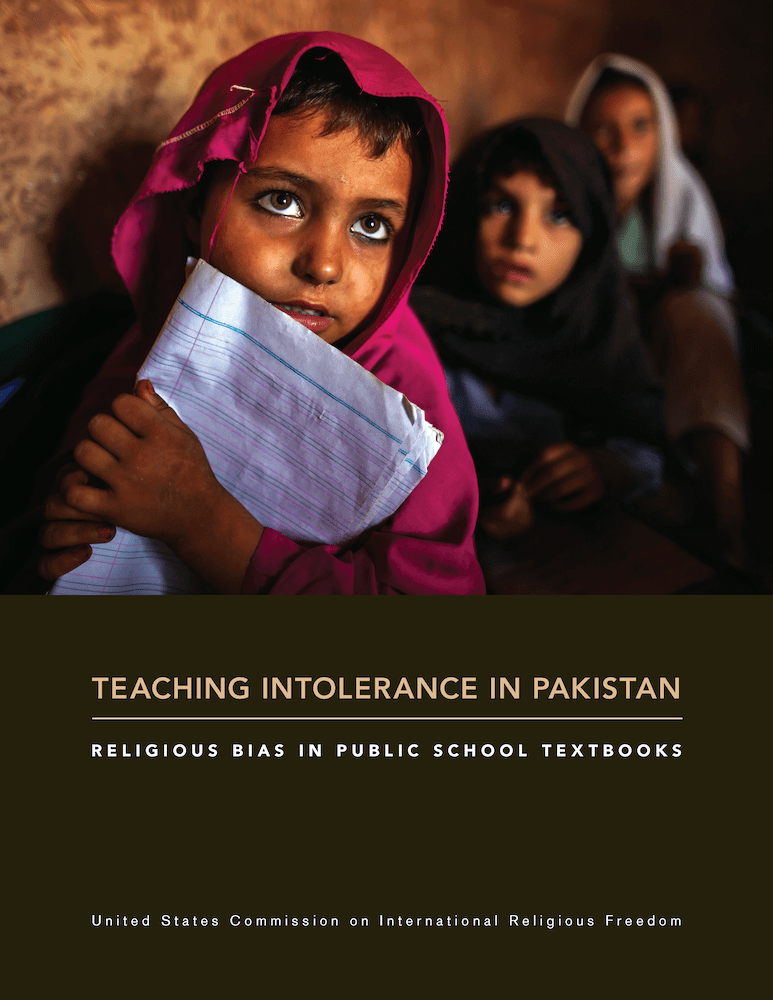
Madrassas, often portrayed as isolated hotbeds of radicalism, are not separate from this mainstream indoctrination. Approximately 19% of them utilize the same government textbooks, supplemented with extremist literature. In 2016, the Easter bombing in Lahore was carried out by a graduate of a government-run Islamabad school who cited textbook depictions of Christians as “enemies of Islam” in his manifesto.
Even more damning is the overlap between public education and military-sponsored extremism. The April 2025 Pahalgam attack, which claimed dozens of lives in Indian-administered Kashmir, was traced back to the Pakistani agency ISI. According to sources in the Indian agency NIA, the conspiracy behind the terror attack was developed within LeT, allegedly under directives issued by senior ISI operatives.
The India Obsession: A Curriculum of Conflict
Perhaps no theme permeates Pakistan’s textbooks more than its obsession with India. Historical grievances and irredentist ambitions are not merely topics—they are central tenets. The 1965 war is mythologized as a divine victory despite Pakistan’s military setbacks. Students are taught to redraw maps claiming Jammu and Kashmir as Pakistani territory, normalizing irredentism from an early age.
In 2020, a curriculum revision added 12 pages detailing Indian “atrocities” in Kashmir but removed chapters on the syncretic, interfaith ethos of the Mughal Empire. In doing so, Pakistan’s education system rewrites history not just to omit inconvenient truths but to actively foster hostility.
This obsessive, adversarial framing not only isolates Pakistan diplomatically but also stokes paranoia that justifies militarism and terror. The textbook assertion that “Kashmir is Pakistan’s jugular vein,” memorized by millions of students, creates an artificial sense of existential threat, which groups like Lashkar-e-Taiba exploit to recruit foot soldiers.
Reform Roadblocks: The Military-Education Complex
While reform has been promised over two dozen times since 2002, little has changed. The primary reason? The Pakistani military’s deep entrenchment in educational policy. The Army Education Corps controls 41% of provincial textbook boards and has been instrumental in inserting national security narratives that emphasize nuclear supremacy and religious nationalism.
Efforts to modernize curricula have been routinely stymied. In 2023, Foreign Minister Bilawal Bhutto Zardari proposed removing hate content from textbooks—a move overruled by military leadership within 72 hours. Civilian governments, already fragile, are effectively powerless to challenge the educational orthodoxy set by the military establishment.
International donors have also played a contradictory role. USAID, which provided $90 million in education aid in 2022, required promotion of “Islamic values” as a grant condition—thereby inadvertently endorsing discriminatory content. Reform cannot succeed without acknowledging and confronting these structural entanglements.
The Way Forward: A Rethink for the Next Generation
If Pakistan is to break this cycle of indoctrination, violence, and economic decline, the solution lies in a complete rethinking of its educational paradigm. This means more than textbook revisions; it means redefining the purpose of education itself—from instilling ideology to cultivating citizenship.
Here are actionable steps that Pakistan’s policymakers, civil society, and international partners must consider:
- Curricular Secularization: Establish an independent curriculum review board free from military or clerical influence, tasked with removing religious and ethnic biases.
- Promotion of Critical Thinking: Replace rote learning with inquiry-based models that foster debate, evidence evaluation, and empathy.
- Inclusive Historical Narratives: Recognize the contributions of minorities and neighboring cultures to Pakistan’s history. A shared past need not mean shared enmity.
- Teacher Training Overhaul: Equip educators with modern pedagogical tools and incentives to teach inclusively and responsibly.
- Transparency and Accountability: Tie international aid to measurable progress on curricular reform and religious tolerance.
A National Rebirth Through Education
Currently, Pakistan is fated to be a failed state. But until it stops poisoning its future through an education system that weaponizes history and theology, no amount of foreign aid, military strength, or diplomatic maneuvering will bring lasting stability.
The most powerful weapon against extremism is not a drone or a soldier—it is a textbook written with honesty, inclusivity, and vision. If Pakistan wants to rise to its potential and secure prosperity for its citizens, it must start by educating its children not to hate, but to think.
The clock is ticking.
References and Further Reading
- U.S. Commission on International Religious Freedom (USCIRF). Teaching Intolerance in Pakistan: Religious Bias in Public School Textbooks. 2016. USCIRF Report
- International Center for Religion and Diplomacy. Connecting the Dots: Education and Religious Discrimination in Pakistan. 2011. USCIRF PDF
- World Bank. Pakistan: Quality Education Requires a Different Approach-and More Investment. 2025. World Bank Blog
- European Foundation for South Asian Studies (EFSAS). How Pakistani Madrassas Contribute to Radicalization Dynamics and Religious Terrorism. 2023. EFSAS PDF
- Harvard Kennedy School. Bilawal Bhutto Discusses Education and Geopolitics of Pakistan. 2019. Harvard Event
- FundsforNGOs. Education Department in Sindh Province of Pakistan Gets $155 Million Grant from USAID. 2011. FundsforNGOs
- U.S. Department of State. USCIRF Press Conference on Pakistan’s Educational System. 2025. USCIRF Press Release
- Migration Letters. “Extremism in Pakistan and Its Impact on Educational Institutes.” 2024. Migration Letters
- Wilson Centre. Pakistan’s Education Crisis: The Real Story. 2016. Wilson Centre
- DAWN Herald. “A Textbook Case: Do School Books Glorify War and Martyrdom?” 2023. DAWN Herald
- Paradigm Shift. “Pakistan’s Defense Budget vs Education Budget.” 2024. Paradigm Shift
- Islamabad Scene. “Google Partners with Pakistan to Create Smart Classrooms.” 2025. Islamabad Scene
- Pakistan Today. “Pak Army’s Contribution to Education in AJK.” 2024. Pakistan Today
- Moneycontrol. “Inside Pakistan’s Classrooms: How Textbooks Shape Hate.” 2025. Moneycontrol
- The New Indian Express. “NIA Confirms LeT-ISI Role in Pahalgam Attack.” 2025. New Indian Express
- News18. “India Highlights Pakistan’s Hate-Filled Textbooks.” 2025. News18
- GKToday. “M4 Carbine Proliferation in Terrorism.” 2025. GKToday
- National Herald. “US Suspends Military Training with Pakistan.” 2018. National Herald


